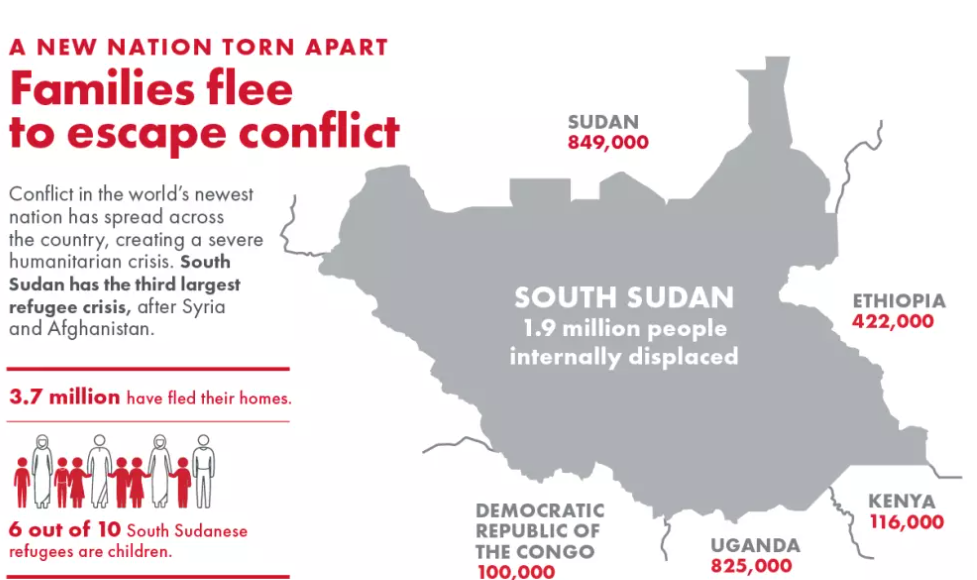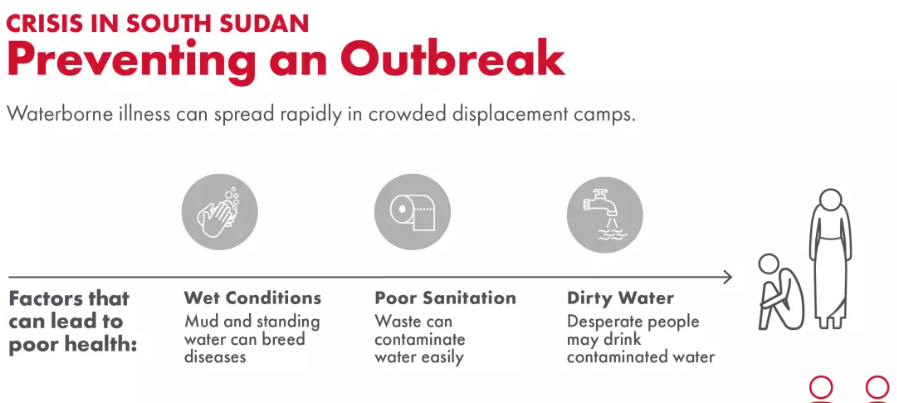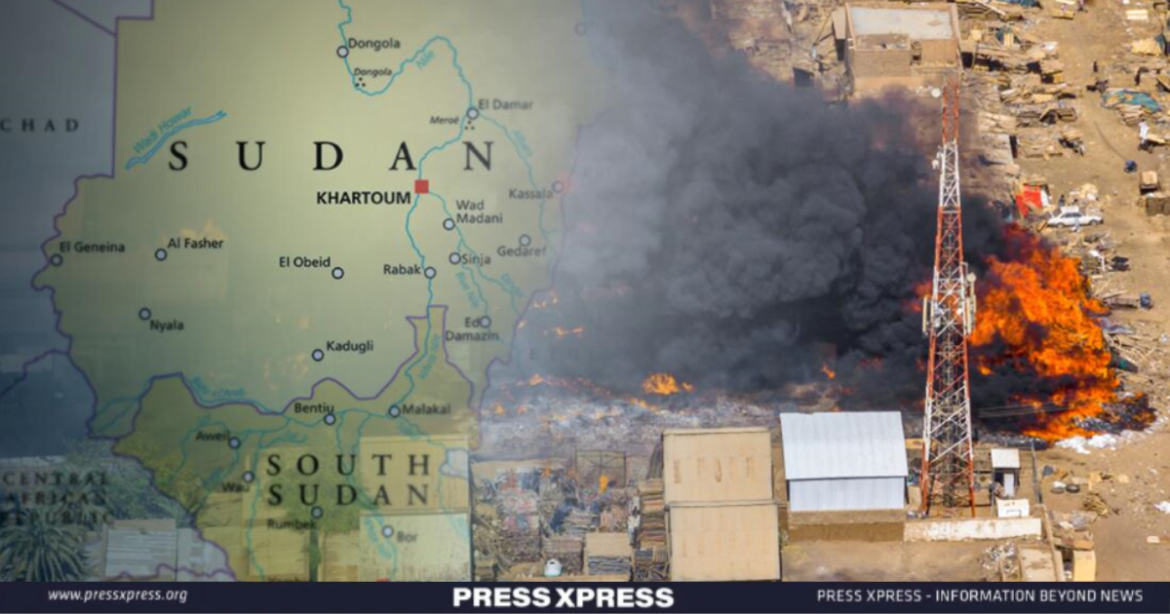The United Nations has appealed for $4.1bn aid to address the humanitarian crisis in Sudan, where a civil war has displaced millions of people and left many facing starvation. The war, which started in April 2023, pits the Sudanese Armed Forces (SAF) against the paramilitary Rapid Support Forces (RSF), who were once allies in the overthrow of former dictator Omar al-Bashir in 2019 and a subsequent coup in 2021.
You can also read: Prabowo Subianto claims victory in 2024 Indonesian presidential election
The RSF, backed by foreign powers, has gained the upper hand in the conflict, capturing the fertile ‘Gezira state’ in December 2023 and cutting off aid access to many areas. The UN’s appeal consists of two parts: $2.7bn to provide life-saving aid to 14.7 million people inside Sudan, and $1.4bn to support 3.7 million refugees and their host communities in five neighboring countries. The funds will be used to deliver food, water, health care, education, shelter, and protection to the most vulnerable people.
The UN High Commissioner for Refugees, Filippo Grandi, who visited Sudan and Ethiopia recently, said the situation was desperate and urgent. “They desperately need help, and they need it now,” he said.
’25 million People Need Aid’
UN agencies said that half of Sudan’s population – about 25 million people – need humanitarian assistance and protection, while nearly 18 million people are acutely food insecure. The conflict has also triggered one of the world’s largest displacement and protection crises, with more than 10 million people uprooted from their homes and 3.7 million fleeing to neighboring countries.

The UN’s humanitarian chief, Martin Griffiths, said Sudan was being neglected by the international community, despite the scale and severity of the crisis. “There is a certain kind of obscenity about the humanitarian world, which is the competition of suffering, a competition between places: ‘I have more suffering than you, so I need to get more attention, so I need to get more money’,” he told diplomats in Geneva last week.
The conflict has claimed 12,000 lives, according to UN estimates, but Martin Griffiths presumes the actual toll is likely to be much higher. Both the SAF and the RSF have been accused of committing war crimes, such as shelling civilian areas, torturing and detaining people arbitrarily, and violating human rights.
The international community has tried to broker a ceasefire and a political solution, but the talks have stalled and the violence has escalated recently. The war erupted over a plan to integrate the RSF into the SAF and pave the way for democratic elections, which the RSF rejected. The RSF, led by Mohamed Hamdan Dagalo, also known as Hemeti, have ambitions to control the country and its resources.
Dying Of Hunger
Sudan is facing a humanitarian disaster as millions of people are at risk of starvation and disease due to a brutal civil war and a cholera outbreak, the UN and aid agencies have warned.

The World Food Programme (WFP), the UN’s food agency, said the number of people in need of food assistance had doubled in the past year, and that people were dying of hunger in many parts of the country.
“The situation in Sudan today is nothing short of catastrophic,” said Eddie Rowe, WFP’s Sudan representative and country director. The WFP called on the warring parties to respect international humanitarian law and allow safe and unhindered access to humanitarian workers and supplies. One of the worst-hit regions is Darfur, where millions of people are suffering from malnutrition, according to Doctors without Borders (MSF).

The aid group said hunger kills two children every hour in the Zamzam displacement camp in North Darfur, where about 400,000 people live. Zamzam was established in 2003, during Darfur’s first civil war, when government-backed militias from nomadic ‘Arab’ tribes fought against mostly ‘non-Arab’ sedentary groups.
Emmanuel Berbain, an MSF medical team leader, said many UN agencies and global relief groups had stopped working in Darfur at the start of the war due to insecurity and lawlessness. “Civilians in Darfur have been left with nothing. Many people had lost their crops and livelihoods due to the war and displacement and water-borne diseases, such as cholera, were spreading rapidly and causing severe malnutrition among children” – Berbain said.
The UN children’s agency, UNICEF, said at least 700,000 children in Sudan were likely to suffer from the worst form of malnutrition this year, and tens of thousands could die. It said the cholera outbreak, which was declared in Gadarif state in the Far East in December, had affected more than 10,000 people and killed more than 300. Darfur was likely facing a similar or worse situation, but the lack of access and data made it hard to assess the scale of the problem. The UN urged the international community to step up its support and funding for Sudan, which it said was one of the most underfunded humanitarian crises in the world.
What Happens Next?
Some observers have suggested that the current fighting could cause Sudan to split in half, with two separate states being formed. Others think that the fighting could remain deadlocked, evolving into a similar situation as in neighboring Libya, where two halves of the country are ruled by opposing parties.
Hager Ali, a research fellow at the German Institute for Global and Area Studies (GIGA) said, “Neither the RSF nor SAF wants to make any concessions toward ending the current fighting. But one of the really big things that will be decisive is each party’s capacity to govern and to mobilize local people in their favor.”
That is where the two sides are not evenly matched, Ali noted. The SAF has most of the structures of government with it, in its base of Port Sudan. Economics will also play a role, and it will depend on who will be able to access Sudan’s most important resources. In that sense, the RSF controls important territory.
“Nobody knows what will happen next. Returning to the kind of power-sharing peace deal that existed before seems unlikely because it would force both the RSF and SAF to make too many concessions and lose personal power and wealth. The two sides are conspiring to divide power and resources at the expense of society,” Ali said.


